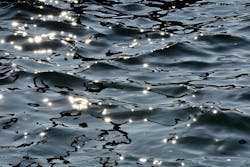EPA Funds Watershed Restoration Projects
The U.S. Environmental Protection Agency (EPA) has awarded the Mississippi Department of Environmental Quality a $2.85 million grant to address nonpoint source pollution. The EPA will support implementation of activities intended to eliminate or prevent Mississippi water quality problems due to the discharge of pollutants from nonpoint sources.
“Protecting the Nation's water is one of EPA's highest priorities under the Trump Administration,” said EPA Administrator Scott Pruitt. “This grant funds state-led programs that are working for communities throughout Mississippi.”
While the program provides statewide coverage, funding will focus on activities that address priority watersheds with water quality problems. Mississippi has identified more than 50 watersheds across the state as priorities for restoration. The funds will be used for local watershed planning and restoration, water quality monitoring, groundwater protection; education and outreach, best management practice demonstrations, compliance assistance and technology transfer.
Nonpoint source pollution is caused by rainfall or snowmelt moving over the ground. This runoff picks up natural and man-made pollutants as it flows, eventually depositing the material into lakes, rivers and groundwater. This type of pollution can be difficult to manage since it cannot be traced to a specific source. Controlling nonpoint source pollution is especially important since one in three Americans get their drinking water from public systems that rely on seasonal and rain-dependent streams.
The grant is part of EPA's 2017 Nonpoint Source Implementation Grant Program. Congress enacted Section 319 of the Clean Water Act in 1987 to control nonpoint sources of water pollution.


